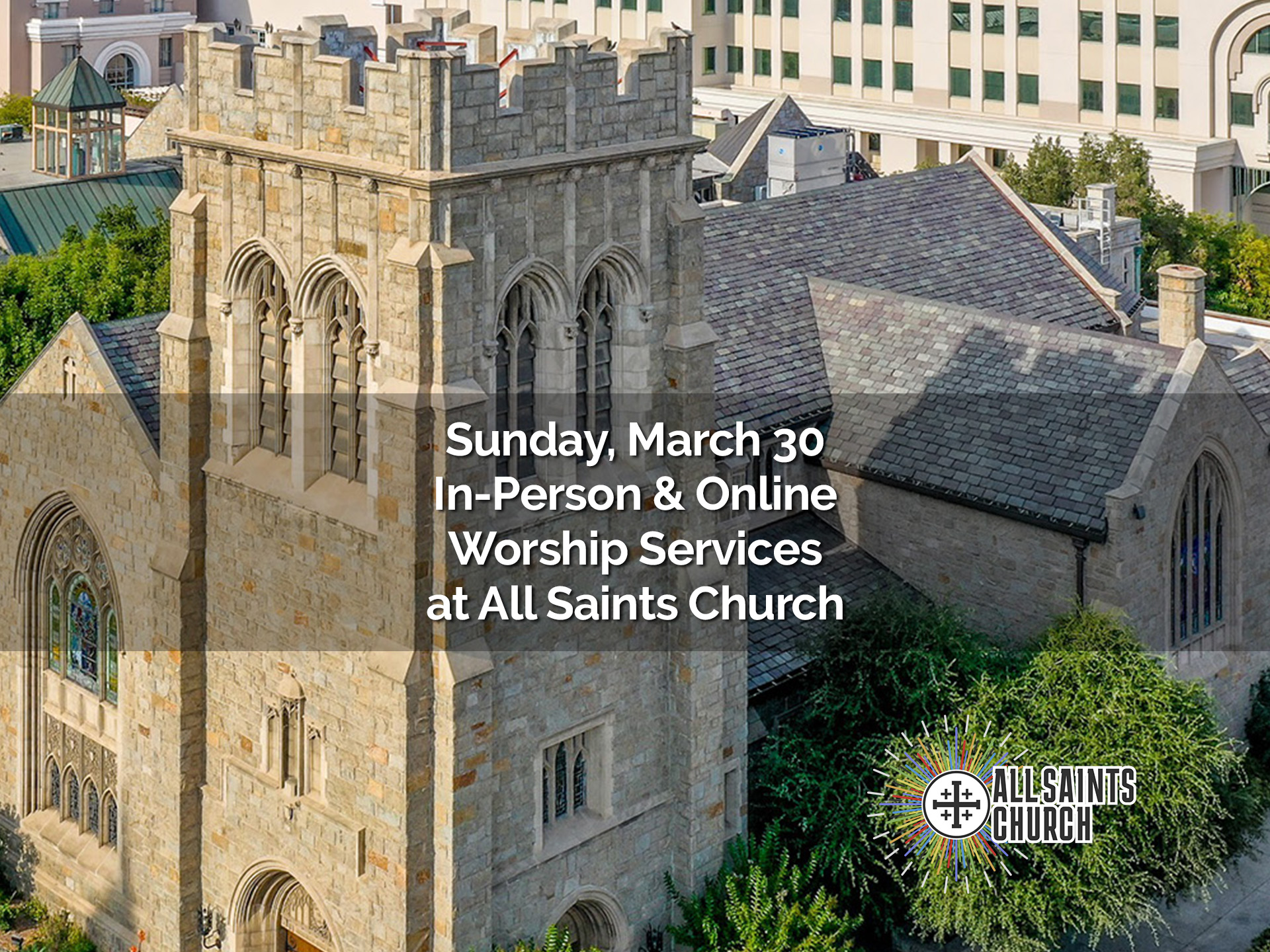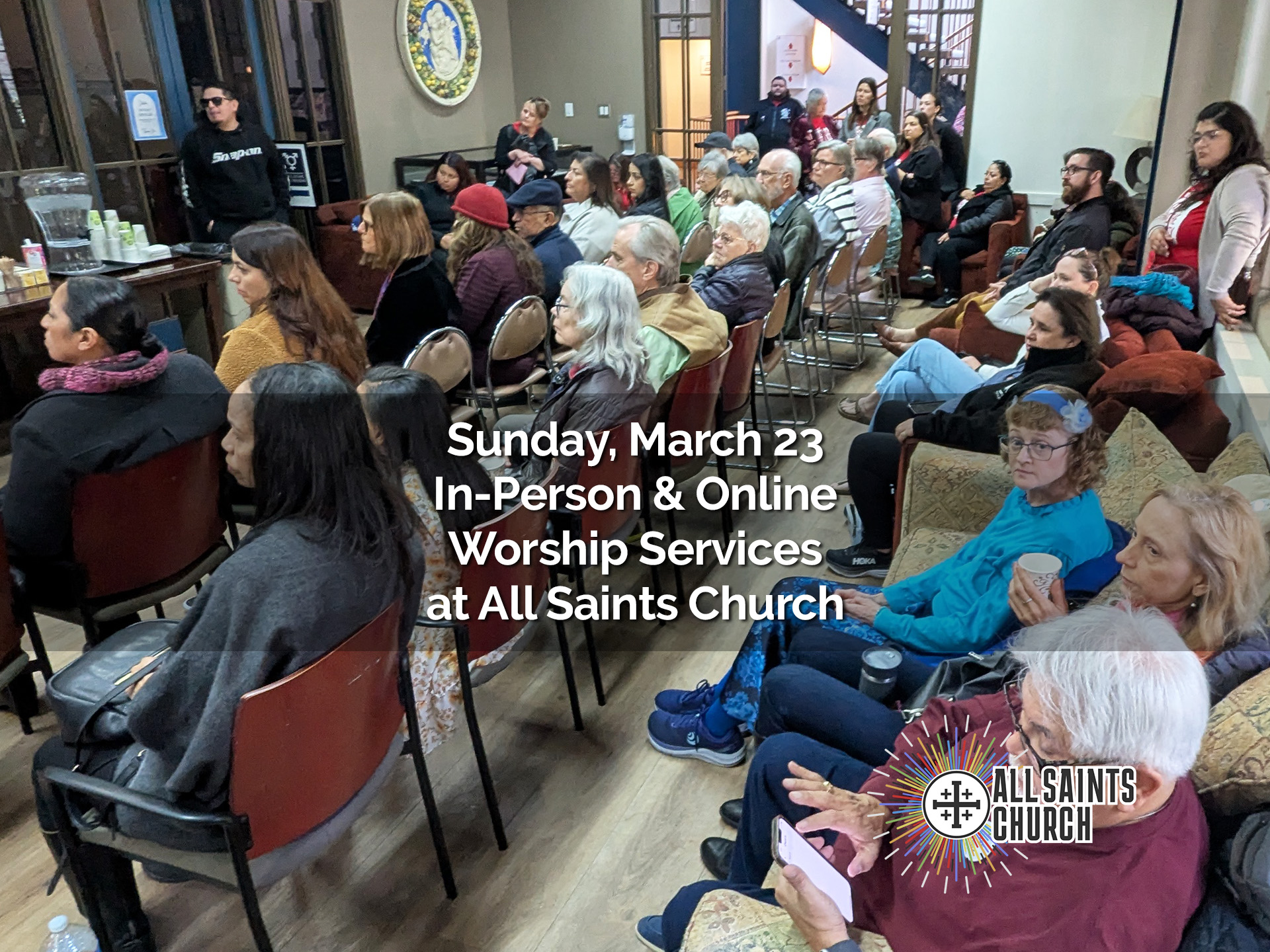Join us on Sunday, March 17 at 5:00 p.m. for Tribute to Mahalia Jackson with Tammy McCann & John Clayton.
Tammy McCann is an internationally recognized Jazz Vocalist who’s powerful, sultry, and emotionally charged voice paints pictures and tells stories by merging Classical vocal technique and Gospel aesthetic with Jazz to create a sound that is completely her own. John Clayton is an extraordinary bassist with a Grammy on his shelf and eight additional nominations.
And we are thrilled to welcome back Dr. Josslyn Luckett to offer a meditation. Dr. Luckett’s early background was in ethnic studies and dramatic writing. She left the film industry to pursue her interest in presenting sacred jazz from an interfaith perspective. This eventually led her to academia and her current project on the cross-cultural collaborations of filmmakers in the early 70’s — many of whom used jazz to further their stories — and inspired her interest in bringing many different religious traditions to the conversation of jazz as spiritual music.
“I love Duke Ellington so much and had been reading “Music is my Mistress” and of course that classic line he has about that time — around ’65 — when he gives the first sacred concert at Grace Cathedral in San Francisco, he says when he was commissioned, “Now I can say openly what I have been saying on my knees all these years in prayer,” and that was such a profound statement to me — to really express that spiritual practice that had always been combined with his creative practice in more of a public way.”
That moved her, and as she researched the music and the origins of black people in this land, she found that from the beginning, it didn’t necessarily have to do with Christianity. The music came from many forms of spiritual practice that were happening in Africa. “Some of those first enslaved Africans had also been Muslims, so there are lots of interesting studies about the call to Mecca having a deep blues imprint, too. And I just had a sense that in the South in New Orleans, there’s also a strong Native American community that would often harbor escaped slaves, so we have to think about Native American practices of music and spirituality also possibly blending with those early days of the music.”
The more she read and thought about it, and studied the lyrics of Ellington’s “Come Sunday” (she says that the first Sunday she came to All Saints “Come Sunday” was performed and it touched her deeply), the more she started to think about the day — Sunday — because Sunday was the day in New Orleans when the musicians, the enslaved Africans would gather in Conga Square to be free, to play the sounds from home. “So ‘Come Sunday’ started to me to not necessarily be connected to ‘Come Sunday’ church, but just to ‘Come Sunday’ to be free and to play those rhythms that remind us of our identity and our tradition. So all of that felt bigger and wider than any one religious tradition.
“If we start to think about Sunday and “Come Sunday” in that way, I feel like that’s much more welcoming because it may be that people not in the Christian traditions say, well, Sunday isn’t my spiritual day, and so me being invited or included to share my spiritual practice on a Sunday sounds like I’m having to wedge myself into a Christian context. And I certainly understand that way of thinking but I have this idea, if we really believe that the roots of this music came in the South and were created by enslaved Africans — and that that one day that they were free was that gathering and empowering day — then I think it’s possible that many more people would be interested in gathering around that idea, versus simply because of Christianity’s tradition of worship on Sundays.
Josslyn is excited to give the Jazz Vespers meditation ‘come Sunday’ of the Mahalia Jackson tribute. “It was Bernice Reagan Johnson who said something like ‘My sonic origins begin with Mahalia Jackson.’ I’m not getting the quote right but it was just something like wow! — Bernice, Sweet Honey, is possible because of Mahalia — is again this beautiful idea that transmission of generations of sound, and making meaning through sound and song and passing it on, and someone like Bernice taking it so powerfully — and of course Mahalia taking it so powerfully — to the civil rights, justice, freedom movement, that’s so important too.”
But wait: there’s more! Download “Sacred Jazz” – the latest episode of our Studio ASC podcast — for an
interview with Dr. Joss by her brother and our All Saints podcast impresario Jason Luckett.
Sunday, March 17, 2019 | 5:00 p.m.



